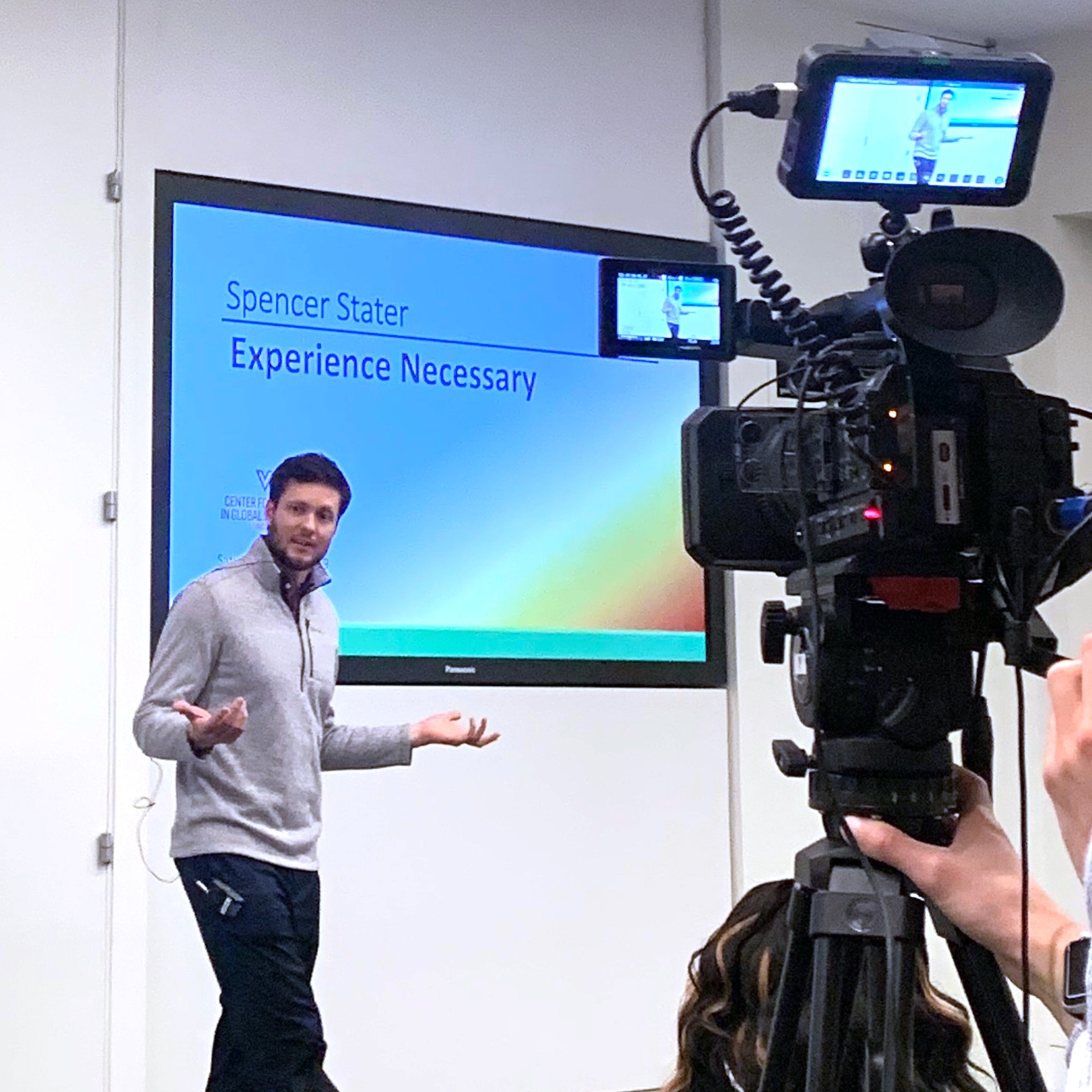Experience necessary: U.S. Marine Corps vet, XMNR alum lands environmental dream job
April 10, 2020

By Lindsay Key
In 2016, Spencer Stater felt like he was spinning his wheels. After his graduation from the University of Northern Iowa with a bachelor’s degree in Geography-GIS: Environmental Science and Policy, Spencer and his wife moved to Kansas City, Missouri where there were plenty of job opportunities in the environmental field. However, Spencer applied to at least 50 jobs with local government and private companies for more than five months without getting an interview.
“I realized quickly that it is a competitive field and experience is almost always necessary,” said Stater. “I thought, ‘I’m in a real pickle here. I can’t get a job without experience and I can’t get experience without a job.’ I didn’t know what to do.”
He realized that with his degree, he could get a job in GIS, so he worked as a GIS Specialist for Black & Veatch and TRC Companies for three years. “However, I soon realized that I didn’t want to sit at a desk for eight hours for 35 years,” he said.
Following his passion, Spencer started applying to jobs in the environmental field again, still hearing nothing, until one day he realized what he needed: a graduate degree. Many job applications said that experience or a master’s degree were required, and Spencer, a U.S. Marine Corps veteran, had a year left on his GI Bill.
Spencer researched environmental and natural resources degrees he could do while continuing to work and found Virginia Tech’s Executive Master of Natural Resources program. The year-long accelerated curriculum was a perfect fit for his career goals, and especially welcoming to veterans. Approximately 15 to 20 percent of current XMNR students are veterans, active military, or military spouses, along with 10 to 15 percent of students in its sister program, the Online Master of Natural Resources.
Not only do classes value the veteran perspective, but the program is also designed to be affordable for veterans, according to Jerry Headley, XMNR alum, U.S. Army veteran, and Director of the Office of Veteran Services at Virginia Tech. “First, the program leaders value and seek out the veteran perspective in class,” said Headley. “They go to great measures to attain a diverse and well-rounded cohort, including diversity of race, gender, age, educational background, and experiential insight… like our veteran population. From a financial perspective, the XMNR program is also friendly for veterans using Veterans Affairs Post 9/11 GI Bill benefits. As this program has fixed-rate pricing and an accelerated timeline, and as the majority of its costs are covered by the VA, veterans are better able to maximize their VA education benefits, and conserve remaining benefits for other advanced degrees or transfer to family members.”
Spencer applied to the XMNR program and started school in January 2019. In addition to the valuable course material in the field of natural resources, he said he also benefited from the professional development components of the program. In his “X Talk”—a brief presentation given to peers and faculty members in the XMNR program and recorded for presentation skills development—he talked about his harrowing, and at times humorous, experiences learning how to craft a better resume and LinkedIn profile. It all paid off.

In December 2019, Spencer graduated with an Executive Master of Global Sustainability degree, and in January 2020 started his dream job as an environmental health specialist for Johnson County, Iowa. The position is multi-faceted, involving analysis of watersheds as well as food inspection for the county’s public health department. “The leadership aspect of the degree is the most important part, in my opinion,” he said. “Any degree can focus on specifics of water pollution and climate change or things like that but if people don’t know how to be leaders they aren’t going to be able to effect any change.”


